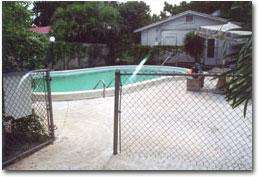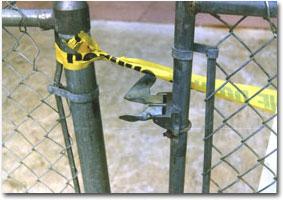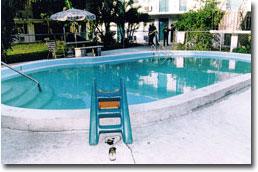Family wins suit for girl’s accident…Complex faulted for tot’s brain damage
Author: By Shannon O’Boye, Sun-Sentinel
Date: February 1, 2003



One hundred million dollars is a lot of money, but not if the price is your child. That’s what Lorri Hinton said Friday, one day after a Broward County jury ordered the owners of the Hollywood apartment complex where she used to live to pay her family that staggering sum – one of the largest awards in state history.
Her daughter, Loren “Tookie” Hinton, now 4, suffered massive and irreversible brain damage after falling into the pool at the two-story apartment complex at 2331 Adams St. on May 15, 2001. The gate to the pool was broken, and tenants had been complaining for months, the Hintons’ lawyers said.
“I’d rather not have (the money) if I could have my baby back,” said Hinton, 32. “I’m pretty sure any parent would say that. My daughter needs the money. We’re not going to be around forever.”
The jury estimated that Loren’s future medical care will cost $54 million. The rest of the award compensates the girl for her pain and suffering and the parents for loss of her companionship.
The defendants, a family from Argentina who bought the building as an investment seven months before the near-drowning, are expected to appeal. Their lawyer, John Kennedy, could not be reached for comment on Friday.
The little girl is confined to a bed or a wheelchair and needs a nurse with her constantly. She cannot walk or talk. Tubes pump liquid food into her stomach, suck secretions out of her lungs and send muscle relaxants through her body so her muscles do not shrink up like coils. In addition to constant attention from nurses, she requires physical therapy seven days a week.
“It’s like she’s trapped in her body,” said her mother, a Miami-Dade County bus driver. “I don’t want any other families to go through this. I want to open people’s eyes. This could have been prevented, and my child would be the normal child she was.”
The jury found the girl’s father, Lonnie Hinton, 33, one percent responsible for the drowning. He was barbecuing outside while a group of approximately 10 children were playing hide-and-seek. The girl went into the pool area, took off her shoes, and slid down a slide into the water while her father was carrying a plate of food to the family’s apartment upstairs.
The lock on the spring-loaded gate was broken, though the city’s code enforcement director said his department had received no complaints about the pool’s gate in the past four years. Lonni Hinton, who now works as a police officer on a military base in California, said his family did not use the pool and had no idea the gate was broken.
State Sen. Debbie Wasserman Schultz, D-Weston, said no parent can watch his or her child every second. She is sponsoring a bill in Loren’s name that would make checking gates the responsibility of state Department of Health workers during their yearly inspections of commercial pools. “They don’t check the gates,” she said. “Obviously, that’s a very simple thing that could be added to the list of things they check.”
“This is a situation where children cannot protect themselves,” she said. “If parents can’t do it, it falls to the government…I have twin 3-year-olds. They go in opposite directions all the time. Even in my own house, there are times where I don’t know where both of them are.”


